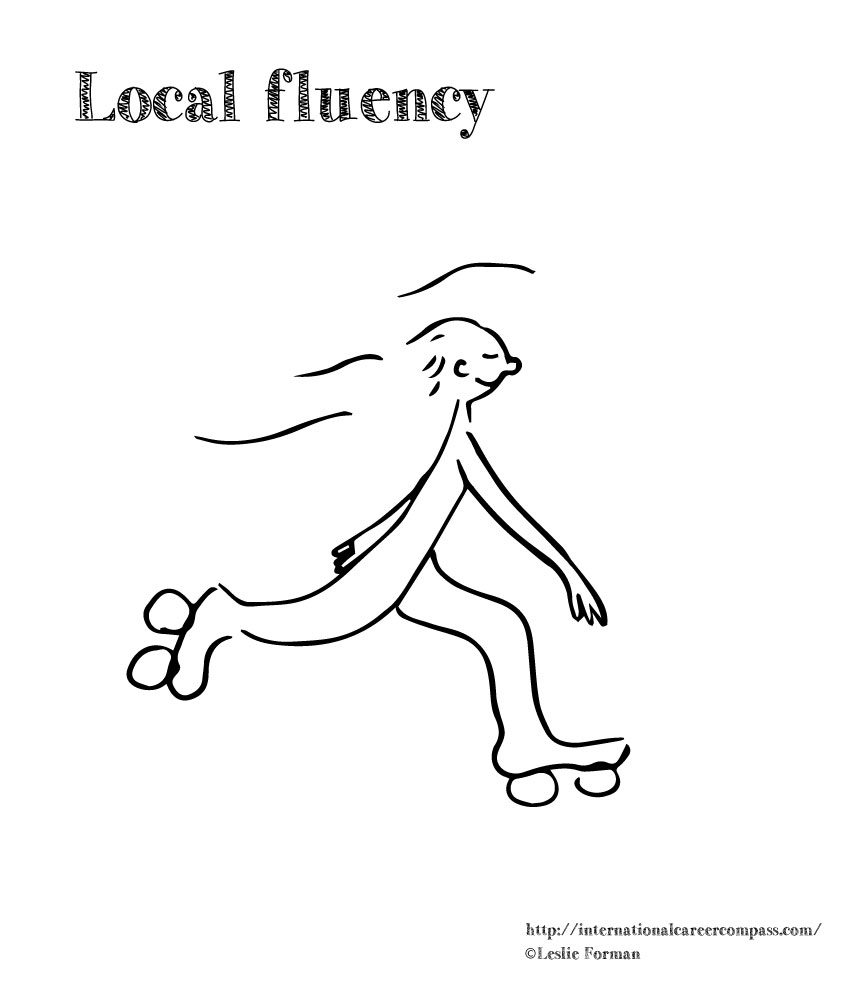Notes on “Creating a Global Career” with NOBLE
“People either want to go internationally or not. That’s not as big a part of the decision, it’s usually how to make it work and decide how you’re going to make it happen.”

I presented How to Find a Career-Building Job Abroad: An Illustrated Guide for the first time last night at a webinar hosted by Mary Risner at the University of Florida for NOBLE, the Network of Business Language Educators. I’m really inspired by NOBLE’s mission to integrate language education and professional development, in high schools and universities across the US and beyond.
Some highlights from our discussion on the webinar:
(1) “People either want to go internationally or not. That’s not as big a part of the decision, it’s usually how to make it work and decide how you’re going to make it happen.”
(2) In creating an international career, steps build upon one another.
Ann Abbott, a Spanish professor at the University of Illinois who teaches practical courses on Social Entrepreneurship, commented:
I think that people simply want to jump straight to the “real job” instead of doing all the necessary work of going through all the stages you have outlined. So it is really good that you show that it takes time and that it comes in steps that build upon each other.
She also asked: “What is *one thing* you should do while you are still in college to help you make this transition after college?” One thing turned into three:
- Study Abroad. This is an amazing opportunity for almost any college student. I wrote more about this here.
- Get comfortable with professional networking — which might (less intimidatingly) be described as making friends, sharing your career interests with them, and following up.
- Use your language skills to do something practical. When I was 20 I led a high school summer program in Costa Rica, where I coordinated lots of events and arrangements for my students. I distinctly remember thinking, “wow, my Spanish is useful for getting things done.” I think more students should have access to this type of practical experience and I’m so encouraged to see that this is what Ann does in her classes.
(3) Visas
One of the most complicated things can be getting legal status/having a company sponsor your work visa. How did you manage that?
Visa trouble has been a consistent companion on my international career journey — and the solution has pretty much always been money. When my Chinese visa was rejected, I made an urgent “visacation” to Hong Kong. On other occasions I paid a Chinese visa agency to sort it out for me. I’m incredibly grateful to Paz Fuenzalida from Foreigner in Chile for getting me through an incredibly stressful visa situation in Chile. I’m so privileged to be able to dig into my savings account to cover these services. If I worked for a large company they might be able to help in a similar process, but sometimes companies expect that the visa be taken care of before you can be hired locally. I consider dealing with visas to be a psychological tax on living abroad.
(4) Family
For working professionals, particularly those with families, one option is to “split the family” – one part stays put to maintain stability, the other goes off to establish a life in your destination. It sucks being apart but it’s an option.
(5) Stage in Career
The idea of a “landing position”(see slides 13-14) might be more attractive for people that are earlier in their careers.
But if you’re taking an intermediate step, e.g. teaching English, you risk losing your edge
(6) Notes on Mindset
- One really needs to be flexible and adventurous to move to another country.
- A lot of this can’t be taught, it’s empirical and only learned via hands on experience.
- Keep and open mind and go with the flow
- Do a lot of listening and observing before jumping in
- But, you can teach students to look at their past struggles with this. Even moving from high school to college involves a lot of these same issues. So they have experienced these things, just not necessarily in a foreign country.
Overall, an interesting and inspiring conversation! Thanks Mary for the invitation!